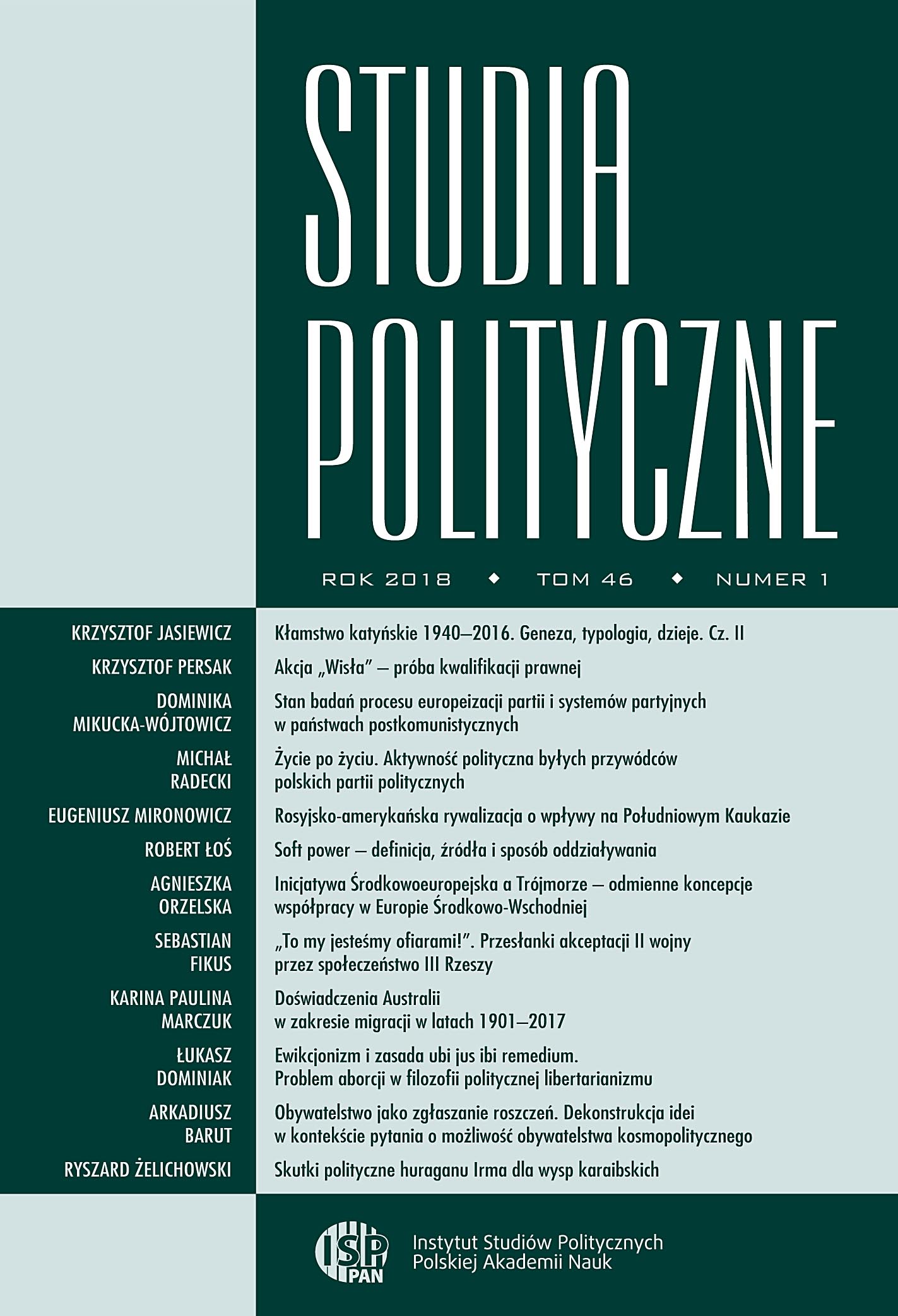Stan badań procesu europeizacji partii i systemów partyjnych w państwach postkomunistycznych – próba ujęcia modelowego
The state of research into the process of the Europeanisation of parties and party systems in post-communist countries: An attempt of model approach
Author(s): Dominika Mikucka-WójtowiczSubject(s): Politics / Political Sciences, Political Theory, Political Sciences
Published by: Instytut Studiów Politycznych PAN
Keywords: Europeanisation; political parties; party system; change of party policy; research model
Summary/Abstract: Simon Hix accurately notes that ‘EU politics is party politics’, and party politicians are an important link between governments and parliaments, parliaments and voters and also the national and European scenes. Milada A. Vachudova also stresses that in the process of European integration, parties are the source of changes in national politics through their compliance or non-compliance with European Union’s (EU) requirements. Despite these voices, the infl uence of the process of Europeanisation on national parties has long been downplayed and authors usually explain that parties have no institutionalised channels of contact with the decisionmaking bodies in the EU.The purpose of this article is to present the current state of research into the process of the Europeanisation of parties and party systems, with particular emphasis on the specifi city and diversity of responses to challenges related to Europeanisation formulated by parties from Central and Eastern Europe. Three aspects of the Europeanisation of parties can be distinguished: changes in the party environment resulting from the ongoing process of European integration; rare but direct interventions of EU actors into party politics; and the infl uence of the Transnational Party Cooperation (TPC). The author refers to the neo-institutional paradigm of research into Europeanisation to indicate its mechanisms, factors determining the responses of national parties and the possible dimensions of observing changes. Importantly, the article also describes the author’s model that can be applied to studies of the Europeanisation of national parties and party systems in post-communist countries, both those who joined the EU between 2004 and 2013 and those aspiring to EU membership. Extensive literature studies and fi eld studies conducted by the author for nearly three years in the post-Yugoslavian countries prompts her to make a hypothesis that the impulses for change coming from the broadly understood European environment (including European institutions and Europarties) are modifi ed by several groups of factors: external factors (the credibility of the integration offer and the advancement of this process); intrasytemic factors (primarily, the infl uence of the communist heritage, constellations of political parties in individual countries and change of public preferences regarding integration); and, fi nally, intraparty factors (the position of leaders, the faction that is currently dominant in the party and the role of electoral defeats).
Journal: Studia Polityczne
- Issue Year: 46/2018
- Issue No: 1
- Page Range: 55-90
- Page Count: 35
- Language: Polish

